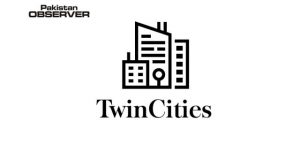Zubair Qureshi
Participants of a virtual seminar on ‘Women’s vulnerabilities in the Covid-19 crisis” urged the government to take urgent steps to financially support and facilitate women in small businesses, trades and those who are home-based workers such as craftswomen, home-chefs and tailors.
“Before the Covid-19 crisis, they were self-supportive and financially over the poverty line therefore they don’t fall in the destitute women’s criteria being served by the Essaas Programme yet they are in need of financial support,” said the participants while taking part in the seminar.
The virtual seminar was organized by Devcom-Pakistan (Development Communications Network) and DTN organized its weekly virtual seminar.
The panel included Gilgit-Baltistan Legislative Assembly Member Rani Atiqa Ghazanfar, former MPA Khyber Pakhtukhwa and chief executive of the De lass Gul Meraj Hamyun Khan, Founder Islamabad Women Chamber of Commerce and Industry (IWCCI) Samina Fazil, former president Khyber Pakhtunkhwa Women Chamber of Commerce and Industry (KPWCCI) Nasira Laghmani, Pakistan Tahreek e Insaaf MPA in the Punjab Assembly Shamim Aftab, senior journalist Tazeen Akhtar, Prof Dr AW Baloch and president Islamabad Rotary Club Raja Muhammad Shabbir. Devcom-Pakistan and DTN Director Munir Ahmed introduced the topic and hosted the seminar.
Rani Atiqa Ghazanfar said the mountain women are more vulnerable to the crisis. Locked down at their homes, they unable to take part any economic activity to share the burden with their men who are mostly daily wagers too. The government has collected the applications online but the financial assistance is not seen anywhere. Most of the beneficiaries of the Benazir Income Support Programme (BISP) have received their pending dues under the Ehsaas programme but the rest of the people are still waiting for any support.
Meraj Humayun Khan said almost three months now we don’t see any clear policy to combat the challenge of Covid-19 crisis. The Khyber Pakhtunkhwa province has no data of the daily wagers and the home-based women workers. How the government would reach to the vulnerable communities if it decides to financially support the women. In this scenario, the government should take civil society organisations of repute and integrity to on board with the district management reach out the marginalized women.
Nasira Laghmani said the KPWCCI has the data of most of the women in business, trade and homework. Similarly, the IWCCI and other branches of the women chambers of commerce could also facilitate the government in reaching out the needy women in business and trade. She said the KP government is still to come up with any framework of action on ground.
Samina Fazil said the IWCCI has reached out to Deputy Commissioner to Prime Minister to put up the case of women whose small businesses are shut down. Most of them are independent, single bread-earners for the families. Many are out of cash to pay the rent of their houses, shops and fees of their children. It seems both sides of the power corridors are playing politics on the crisis. Lockdown or no lockdown, women shall be the priority of the government.
MPA Shamim Aftab mentioned that PTI workers are supporting the district management and government organizations to reach out the vulnerable communities. The volunteers are also collecting data of the needy and deserving people that are not served in the first phase of aid under the Ehsaas programme.










